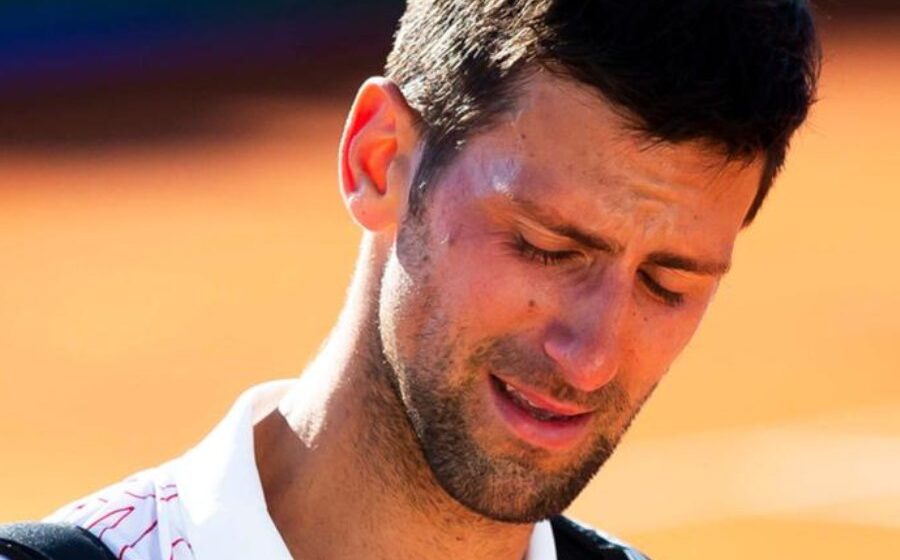The federal government’s decision to cancel tennis world No.1 Novak Djokovic’s visa has been overturned in the Federal Court – but the superstar athlete’s Australian Open fate remains under a cloud.
The 34-year-old arrived in Australia late on Wednesday after declaring he had a medical reason not to get vaccinated against COVID-19.
Djokovic was taken to immigration detention after having his visa cancelled early Thursday morning.
A Federal Court challenge to overturn the decision was launched and, on Monday, was ruled in Djokovic’s favour.
Judge Anthony Kelly ruled the Serbian superstar be released from detention within 30 minutes.
He says the visa cancellation decision would be quashed and the government will pay costs.
Counsel for the Commonwealth Christopher Tran, however, said the Minister for Immigration and Citizenship may still exercise his personal powers to cancel the visa regardless.
“I am instructed that the Minister for Immigration, Citizenship, Migrant Services and Multicultural Affairs, not the Minister in this proceeding, will consider whether to exercise a personal power of cancellation under s 133C(3),” Mr Tran said.
“Those are my instructions to inform the court.”
Minister Hawke will have to make a decision on whether to enforce the cancellation on Monday evening.
Should that happen, Judge Kelly says, Djokovic would be barred from entering Australia for three years.
The hearing was on Monday plagued by technical issues, with live streams collapsing under the pressure of tens of thousands of people trying to watch.
As a result, Judge Kelly earlier ordered Djokovic be taken from detention to a confidential location specified by his lawyers, from where he could watch the hearing unfold.
Nick Wood SC says Djokovic declared before boarding his flight to Australia from Dubai that he had a medical contraindication and was able to provide evidence – a medical exemption by Tennis Australia.
Judge Kelly asked: “What more could this man have done?”
“Here, a professor and an eminently qualified physician have produced and provided to the applicant a medical exemption,” he said.
“Further to that, that medical exemption and the basis on which it was given, was separately given by a further independent expert specialist panel established by the Victorian state government.”
The judge said those documents were in the hands of the immigration department delegate who made the decision to cancel his visa on behalf of Home Affairs Minister Karen Andrews.
Mr Wood said Djokovic was “utterly confused” because he had done everything asked of him.
His lawyers argue Djokovic contracted COVID-19 on December 16 and was symptom-free before his arrival.
They say he met criteria for a temporary exemption under Australian Technical Advisory Group on Immunisation (ATAGI) guidelines and was denied procedural fairness during the decision to revoke his visa.
Djokovic was questioned by authorities through the night, between his arrival just before midnight Wednesday and the visa cancellation at 7.42am Thursday.
A partial transcript records Djokovic telling authorities he wasn’t vaccinated against COVID-19. He has previously declined to confirm his vaccination status.
Government submissions say Djokovic is wrong to challenge the claim that previous infection is grounds for an exemption.
They say the ATAGI advice is clear that past infection is not a contraindication for infection and instead a person can defer vaccination for six months after acute illness.
“There is no suggestion that the applicant had ‘acute major medical illness’ in December 2021,” the documents say.
“All he has said is that he tested positive for COVID-19. That is not the same.”
The ATAGI advice also says a person who tests positive can receive a first or second dose of a COVID-19 vaccination once they are asymptomatic.
Chris Tran, representing the Commonwealth, told the court there was precedent for siding with his arguments in the case – poking fun at himself in the process.
“I think it will be useful for Your Honour to consider two cases – both of them losses of mine, so I’ll be revisiting happy memories,” he said.
He’ll begin his detailed submission later on Monday.
Australian government lawyers have asked the judge to reject Djokovic’s legal challenge and order he pay costs.
But should he win and the court order his immediate release, they want the judge to make it clear there’s nothing stopping them detaining him again.
The hearing is continuing.
The saga has divided the tennis world and left Djokovic’s quest for a record 21st grand slam title at Melbourne Park in turmoil.
Andy Murray is the latest big name to show concern for Novak Djokovic while declaring that the saga which has engulfed the world No.1 is “really bad” for tennis.
“I think everyone is shocked by it to be honest,” the former world No.1 told reporters.
“I’m going to say two things on it just now. The first thing is that I hope that Novak is okay. I know him well, and I’ve always had a good relationship with him.
“The second thing I’ll say on it, is it’s really not good for tennis at all, and I don’t think it’s good for anyone involved. I think it’s really bad.
“Some stuff has come out that really doesn’t look good, either. I want to hear all the facts first before giving all of my thoughts on it.”
Murray’s thoughts have been echoed by other tennis stars like Australia’s most high profile men’s player Nick Kyrgios, who said: “I’m feeling for him now. Like it’s not really humane, is it, what’s going on?”
Eyebrows have been raised about the timeline of Djokovic’s COVID infection, which documents show to have been on December 16 last year.
A series of photos emerged showing Djokovic attending multiple events on December 16. The photos then appear to show Djokovic to have been out in public on the following two days.
He was pictured at an awards ceremony for junior tennis players, believed to have taken place on December 17.



